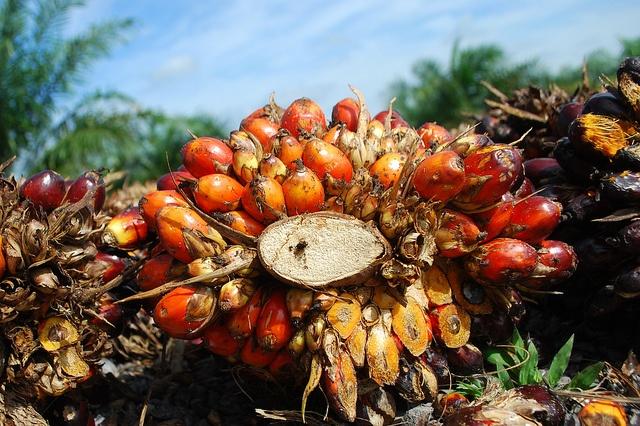
By Raminder Chowdharty
Here is some news most of us may have overlooked: On May 26, Norway became the first country on our fragile planet to pledge a deforestation-free public procurement policy. Simply put, products that contribute to deforestation will not be used in the country.
This monumental move comes two years after Norway issued a joint declaration with Germany and the U.K. at the United Nations Climate Summit to "promote national commitments that encourage deforestation free supply chains, including through public procurement policies to sustainably source commodities such as palm oil, soy, beef and timber."
While pressure mounts on global corporations to nurture deforestation-free supply chains, the power of public purchasing and its ability to work for forests and people is overlooked or often under-estimated. Time for some sobering statistics:
- Trillions of dollars are spent every year by government agencies on behalf of their citizens in public procurement-related transactions. In developing countries, it is estimated that US$820 billion a year is spent on public procurement, accounting for an estimated 15 to 20 percent of the gross domestic product (GDP) and up to 50 percent or more of total government expenditure. Public procurement is important in high-income countries as well, reaching on average 12 percent of GDP and about 29 percent of total general government expenditure (UNCITRAL 2011). In fiscal year 2013 alone, federal procurement spending in the United States topped US$460 billion, according to the Office of Management and Budget, a number that roughly equates to the combined GDPs of Chile and the Czech Republic (World Bank, 2013). Moreover, the volume of government expenditure through public procurement has been steadily increasing.
- Forests cover 31 percent of the land on Earth, producing oxygen and removing carbon dioxide. Over 1.6 billion people rely on forests for food, fresh water, clothing, medicine and shelter. Yet, around 46,000 to 58,000 square miles of forest are lost each year — a rate equal to 48 football fields every minute. Deforestation and forest degradation is estimated to contribute around 20 percent of all greenhouse gases, thereby leading to global warming.
- Finally, the public sector is a major purchaser of food and catering services for schools, nurseries, hospitals, care homes, prisons, the military and others. This also covers most of the key forest risk commodities like timer, palm oil, soy, beef, etc. A 2006 report identified food as the third most important of 10 priority sectors for U.K. sustainable procurement policy. For the European Union as a whole, food and catering services was identified as second out of 10 priority sectors. In 2009, 7 to 12 percent of the palm oil and palm kernel oil imported into the U.K. was consumed by the public sector.
The volume and potential impact of public procurement policies can clearly have a significant impact on the rate of degradation of forests and deforestation on our planet.
Whereas the case for including criteria for sustainability in procurement policies is clear and evident, only a few countries have passed legislation to further this. The silver lining seems to be the timber procurement policies of many developed nations, where there are valuable lessons to be learned.
Timber is an industry with a direct impact on the state of our forests and where the role and scale of public procurement is significant. For example, in the U.K. the public sector accounts for 30 to 50 percent of the demand for office furniture. Largely in response to growing concerns over illegal logging and its impact on global warming, over 30 developed nations have now adopted some form of sustainability criteria (through certification schemes) in their central government timber procurement policy. Certification is provided by some key accreditation schemes operated by the Program for the Endorsement of Forest Certification Schemes (PEFC), the Forestry Stewardship Council (FSC), the Sustainable Forestry Initiative (SFI), the Canadian Standards Association (CSA) and the Malaysian Timber Certification Council (MTCC).
Furthermore, market research substantiates that public procurement policies for certified timber and wood-based products can increase the market share of legally- and sustainably-sourced timber. The share of certified timber and panel products imported into the U.K. grew from 55 percent in 2005 to over 80 percent in 2008.
Beyond timber
Whereas sustainable procurement of timber products receives widespread recognition, policymakers need to recognize that other commodities like palm oil, coffee, tea, cocoa and beef also have a significant impact on the state of forests. And there is need to apply sound procurement policies in their trade. Some kind of easy identification schemes for these products is essential.
Public procurement agencies engage large armies of officers managing thousands of contracts over a large variety of products and services. They are ill-equipped and do not have the time on hand to research or check whether individual products, shipment lots or suppliers meet sustainability criteria.
Systems like the pre-existing forest certification for timber products need to be introduced for other agricultural products. Failing this, an effective and sustainable public procurement policy will be hard to implement.
Image credit: Iddy Farmer for Center for International Forestry Research via Flickr
Based in India, Raminder Chowdharty has over 20 years of global work experience with MNC’s as a sourcing and procurement specialist. He is passionate about sustainability, cultural heritage, preservation of traditional wisdom and promoting environmental stewardship through experiential travel.
In 2002, he founded One Earth Foundation, a not for profit organization focusing on conservation of natural eco-systems, preservation of traditional wisdom and environmental education. The organization has successfully implemented numerous projects in the sectors of TK & TCE preservation, special needs groups, livelihood challenges for indigenous communities, water, forest and lakes stewardship drives and engaging students in various ecological initiatives. Raminder is a regular speaker on various regional and national forums promoting the need for higher levels of corporate participation in social and environmental issues facing us today.
TriplePundit has published articles from over 1000 contributors. If you'd like to be a guest author, please get in touch!














